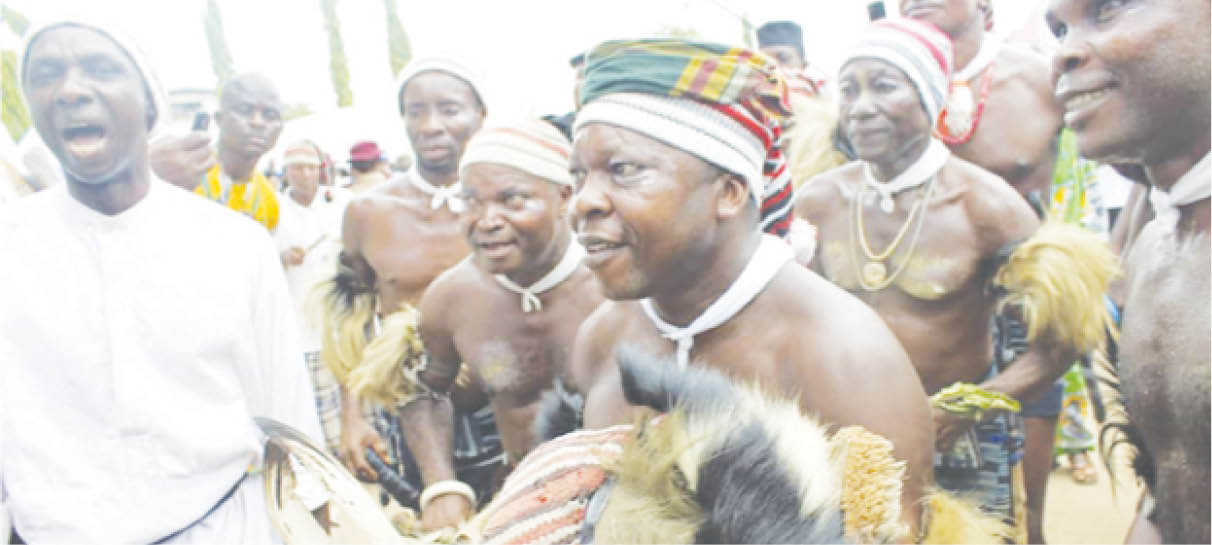The Ohafia War Dance, also known as Ikpirikpi Ogu in Igboland, is a popular dance performed in several parts of Eastern Nigeria. The dance, which has its roots in Ohafia, is performed by muscular men in commemoration of their strength in fighting and winning wars.
According to oral history, the ancestors of Ohafia were renowned to be mighty men of war who were always on the lookout for battles to take part in. The Ohafia warrior tradition, which remains one of the fundamental identities of the people, is hinged on the performance of Ikpirikpi Ogu – the practice of beheading a fallen enemy.
A human skull is a proof of a man’s courage and strength. Only those who brought home a human head could join the Ogbu-Isi society and wear an eagle’s plume which is a symbol of courage. Only men are permitted to perform the dance and beat the drums.
The Ohafia tribe of Abia state were renowned fighters in ancient warfare. The dance reminiscent of celebrations after a successful battle as a victory dance to honour warriors of the tribe.
A community leader in Ebem and a Senior citizen, Mazi Ogbaa Kalu, told South East Trust that, according to history, the Ohafia people were originally natives of Andoli but unwillingly left one night due to what they understood to be a threat.
He said human skulls taken during wars were kept as souvenirs and as a proof of courage and honour.
The performance of the War Dance, the Octogenarian said is meant to celebrate war achievements, be it individual victories over enemies or the victory of the army.
“The Ohafia War Dance is performed to honour an individual’s accomplishments. The lead dancer carries a basket full of human skulls, called Oyaya. At the same time holding a short cutlass and puts a small palm shoot in his mouth.
“The Oyaya displays how many skulls the warriors were able to collect due to their skillfulness and bravery. The other dancers, clad like deadly warriors mime the cutting of a human head, as they dance to the music played with the akwatankwa musical instrument. This act depicts the bravery of the Ohafia men. The Ohafia war dance celebrates the rich cultural heritage of the Ohafia people. It also serves as a glimpse into centuries ago when winning an inter-tribal war meant a great deal to the winning tribe,” he said.
From a usual war event, this process has turned into a performance that showcases the might and prowess of Ohafia people.
The traditional Ohafia dance with the mimicked beheading of their enemies has already become a popular Igbo cultural dance rather than an everyday warriors’ routine. Those who visit Igboland stand a chance of seeing this dance performed at events.

 Join Daily Trust WhatsApp Community For Quick Access To News and Happenings Around You.
Join Daily Trust WhatsApp Community For Quick Access To News and Happenings Around You.


